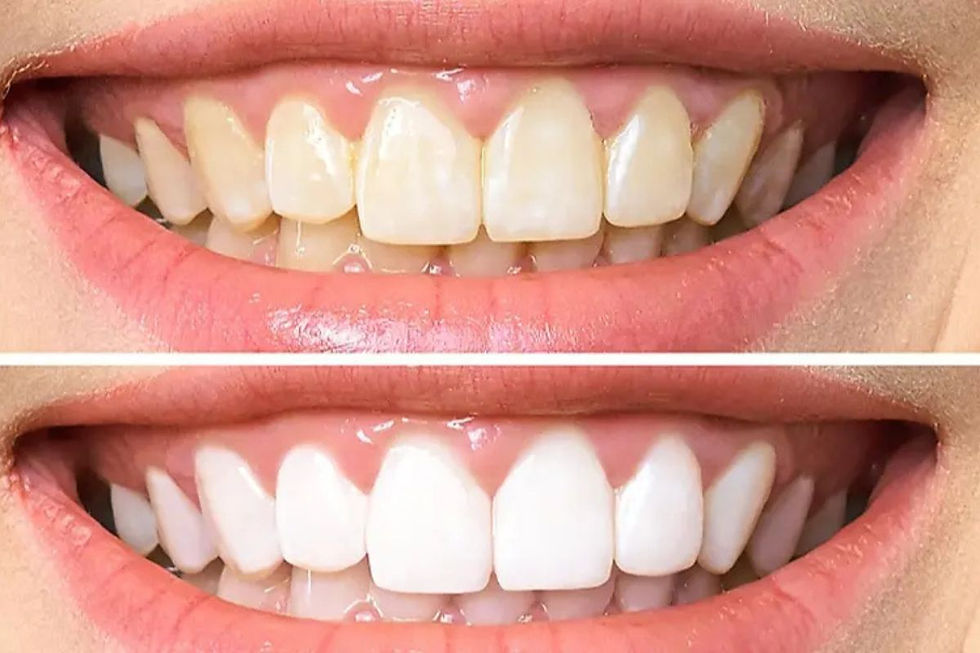Why is Gold Used for Teeth?
- meydenbeaurdental
- Jul 18, 2024
- 4 min read
Gold has been used in dentistry for centuries, and its application continues to be relevant even with the advent of modern materials. The reasons for using gold in dental procedures are numerous and supported by scientific evidence and practical benefits. This blog explores why gold is used for teeth, emphasizing the enduring advantages it offers.
The Historical Context of Gold in Dentistry
Gold's use in dentistry dates back to ancient times. Its unique properties and appeal have made it a preferred choice for various dental applications. Understanding the historical context helps appreciate its long-standing role in oral health.
Ancient Civilizations and Gold
Gold was first used by ancient civilizations such as the Etruscans and Egyptians for dental restorations. They recognized gold's malleability and resistance to corrosion, making it an ideal material for dental work.
Evolution of Dental Practices
Over time, dental practices evolved, and the use of gold became more refined. By the 19th and 20th centuries, gold had established itself as a premier material for dental restorations due to its reliability and durability.
Modern Applications of Gold in Dentistry
In contemporary dentistry, gold is still valued for its exceptional qualities. While newer materials have been introduced, gold remains a staple in many dental practices, including those of the Dentist in Bellevue, known for combining traditional and modern techniques.
Benefits of Using Gold for Teeth
Gold's unique properties make it an excellent choice for dental restorations. Here, we delve into the specific benefits that gold offers, which continue to make it a preferred material for many dentists.
Biocompatibility
One of the primary reasons gold is used in dental restorations is its biocompatibility. Gold does not react with the body, reducing the risk of allergic reactions and ensuring long-term safety.
Durability and Longevity
Gold is incredibly durable and can withstand the forces of chewing and grinding. This durability translates to longer-lasting dental restorations, which can last for decades with proper care.
Precision and Fit
Gold restorations can be crafted with a high degree of precision, ensuring a perfect fit. This precision helps maintain the integrity of the restoration and the surrounding teeth.
Aesthetic Considerations
While gold is not tooth-colored, its use in certain restorations can be aesthetically pleasing. Gold can be polished to a high shine, making it an attractive option for certain patients.
Comfort and Functionality
Gold restorations provide excellent comfort and functionality. They adapt well to the natural movements of the mouth, ensuring a comfortable and functional fit.
Reduced Wear on Opposing Teeth
Gold is gentle on opposing teeth, reducing the risk of wear and tear. This property is particularly beneficial for patients who have restorations that come into contact with natural teeth.
Corrosion Resistance
Gold is resistant to corrosion, ensuring that it remains intact and functional over time. This resistance to corrosion makes gold restorations a long-lasting solution.
Customization and Versatility
Gold can be customized to suit individual patient needs, offering versatility in dental restorations. This customization ensures that each restoration meets the specific requirements of the patient.
Why Dentists Continue to Recommend Gold
Despite the availability of other materials, many dentists, including those at Dentist in Bellevue, continue to recommend gold for certain dental restorations. The reasons are rooted in both science and patient satisfaction.
Proven Track Record
Gold has a proven track record of success in dental restorations. Its long history of use and positive outcomes make it a trusted choice for dentists and patients alike.
Patient Preferences
Some patients prefer gold restorations for their aesthetic appeal and durability. Dentists cater to these preferences by offering gold as an option.
Superior Performance
Gold's superior performance in terms of fit, comfort, and longevity makes it a preferred material for specific dental restorations, such as crowns and bridges.
Professional Endorsements
Professional dental associations and organizations often endorse the use of gold for dental restorations. These endorsements are based on extensive research and clinical evidence.
Technological Advancements
Advancements in dental technology have enhanced the use of gold in restorations. Modern techniques allow for more precise and efficient use of gold, benefiting both dentists and patients.
Cost Considerations
While gold restorations can be more expensive upfront, their durability and longevity often make them cost-effective in the long run. Patients and dentists weigh these factors when considering gold as a material.
Educational Outreach
Dental professionals, including those at Dentist in Bellevue, often educate patients about the benefits of gold restorations. This educational outreach helps patients make
informed decisions about their dental care.
Cultural and Personal Significance
For some patients, gold has cultural or personal significance, influencing their choice of dental materials. Dentists respect and accommodate these preferences in their practice.
Gold's use in dentistry is backed by centuries of success and continues to be relevant due to its numerous benefits. From biocompatibility and durability to superior performance and patient preferences, gold remains a valuable material for dental restorations. Dentists, including those at Dentist in Bellevue, recognize the enduring value of gold and continue to recommend it for various dental procedures. As dental technology evolves, the use of gold is likely to remain a testament to the blend of tradition and innovation in oral health care.



Comments